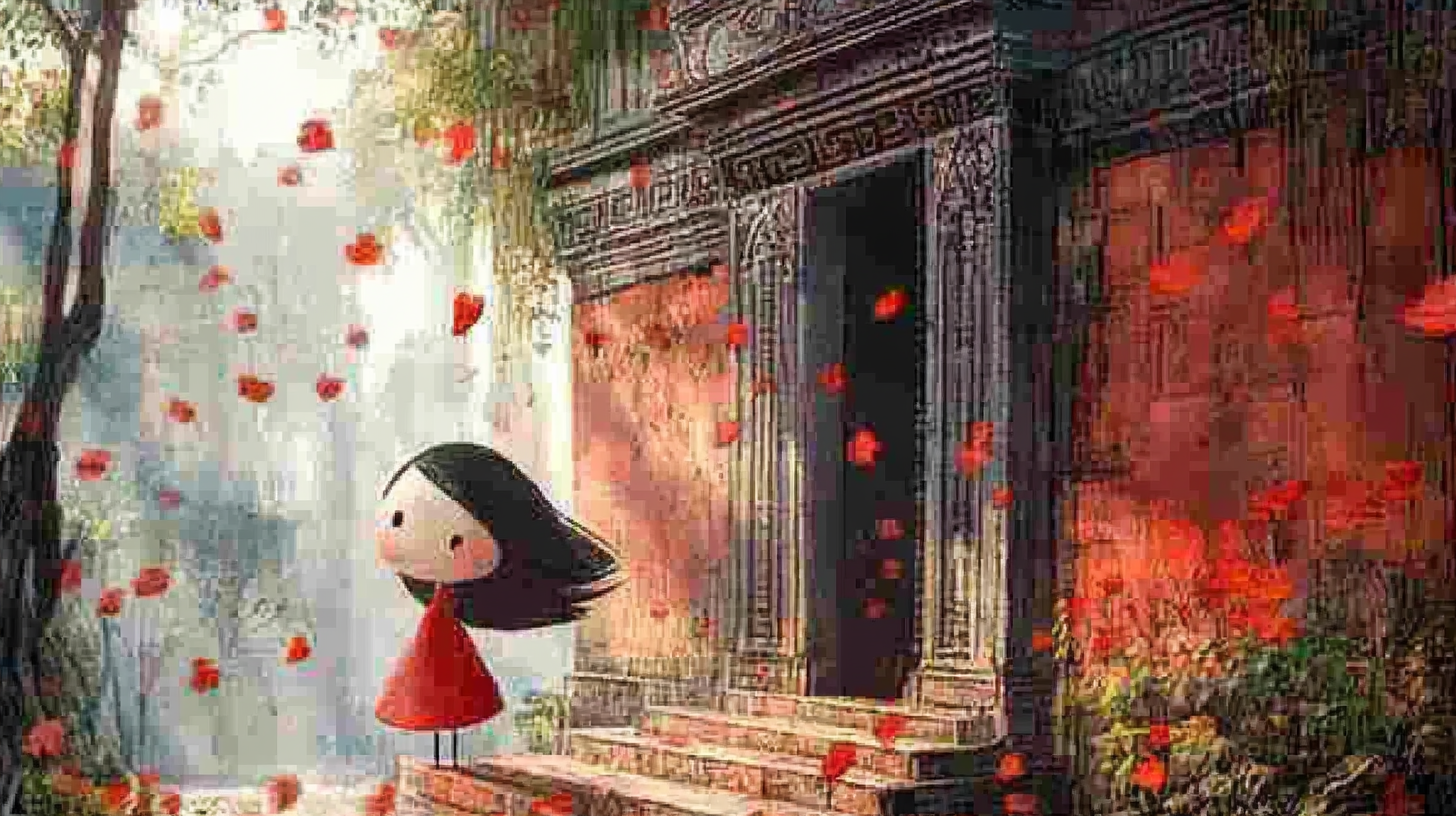Ancient means something that is from a very long time ago.
以下は英単語 “ancient” に関するストーリー型学習コンテンツです。まずは大枠の意味を理解して最後の文章で確認しましょう。
主な意味(main meaning)
| 品詞 | 意味 | 発音記号 | 英語例文 |
|---|---|---|---|
| 形容詞 | 昔の、古代の | /ˈeɪn.ʃənt/ | The ancient city was full of ruins and old stories. |
語源(etymology)
「ancient」はラテン語の ante(前)に由来し、「時間的に前の方=古い」というイメージが核です。フランス語の ancien を経て英語に取り入れられました。
類義語(synonyms)
| 類義語 | 英語例文 |
|---|---|
| old | This is an old book from my grandfather. |
| antique | She collects antique furniture from the 18th century. |
| archaic | The law is considered archaic and no longer used. |
| historic | We visited a historic building from the 1600s. |
「ancient」と「old」はどちらも「古い」という意味を持ちますが、使い方やニュアンスに明確な違いがあります。以下の表で違いをまとめます。
| 項目 | ancient | old |
|---|---|---|
| 意味の強さ | 「非常に古い」「歴史的に古い」 | 「古い」「以前の」「長く使われた」 |
| 時間の幅 | 数百〜数千年前のもの | 数年前〜数十年前まで幅広く使用 |
| よく使われる対象 | 遺跡、文明、歴史、伝統 | 人、物、建物、服など日常の物 |
| ニュアンス | 荘厳、歴史的、神秘的な響きがある | 単純に時間が経過している印象 |
| 例文 | The ancient temple was built 2,000 years ago. | This is my old jacket from high school. |
- ancient:
They studied ancient Egyptian culture in school.
→ 「古代エジプトの文化」=歴史的・考古学的な文脈 - old:
He gave me his old phone.
→ 「使い古された携帯電話」=新しくない物
つまり、ancientは「歴史的・考古学的に非常に古いもの」に対して使い、oldは「単に時間が経っているもの」に広く使われます。
反義語(antonyms)
| 反義語 | 英語例文 |
|---|---|
| modern | This modern house has solar panels. |
| new | I bought a new phone yesterday. |
コロケーション(collocations)
| コロケーション | 英語例文 |
|---|---|
| ancient history | I studied ancient history in college. |
| ancient ruins | Tourists visit the ancient ruins every summer. |
| ancient civilization | Egypt is famous for its ancient civilization. |
| ancient tradition | This is an ancient tradition passed down for generations. |
2項表現(binomials)
| 表現 | 英語例文 |
|---|---|
| old and ancient | He loves collecting old and ancient coins. |
| ancient and mysterious | The cave was ancient and mysterious, filled with secrets. |
英語ストーリー(english story)
Title: A Trip to the Ancient City
Last summer, Emma and her classmates visited an ancient city as part of their history class. The city was full of ancient ruins and historic buildings. Their guide explained the ancient history of the place and showed them antique objects used hundreds of years ago.
As they walked around, Emma noticed how different everything looked compared to her modern hometown. “These ancient streets must have many stories,” she said. One building had a sign that read “This house is part of an ancient civilization.”
Emma took many photos and wrote notes for her school report. She especially loved learning about the ancient traditions of the people who once lived there. Her friend Max said, “This place is old and ancient, but very beautiful.”
Later, their teacher asked, “Can anyone explain why this law seems archaic today?” Emma raised her hand and answered with confidence.
The trip ended with a visit to a museum that had both new and antique items. “I think I want to study history in college,” Emma told her teacher. It was a trip that would stay in her memory forever.
和訳
タイトル:古代の町への旅
去年の夏、エマとクラスメートたちは歴史の授業の一環で古代の町を訪れました。その町は古代の遺跡や歴史的な建物でいっぱいでした。ガイドさんがその場所の古代の歴史を説明し、何百年も前に使われたアンティークな品々を見せてくれました。
歩いていると、エマは自分の現代的な故郷と比べてすべてがとても違うことに気づきました。「この古い通りにはたくさんの物語があるに違いない」と彼女は言いました。ある建物には「この家は古代文明の一部です」と書かれていました。
エマはたくさんの写真を撮り、学校のレポート用にメモも取りました。特に、その地に暮らしていた人々の古代の伝統を学ぶのが気に入りました。友達のマックスは「この場所はとても古いけれど、本当に美しいね」と言いました。
その後、先生が「この法律が古臭く感じられる理由はわかる?」と質問しました。エマは手を挙げて自信を持って答えました。
最後に、彼らは新しい物とアンティークな物が並ぶ博物館を訪れました。「私は大学で歴史を勉強したい」とエマは先生に話しました。思い出に残る旅になりました。



コメント